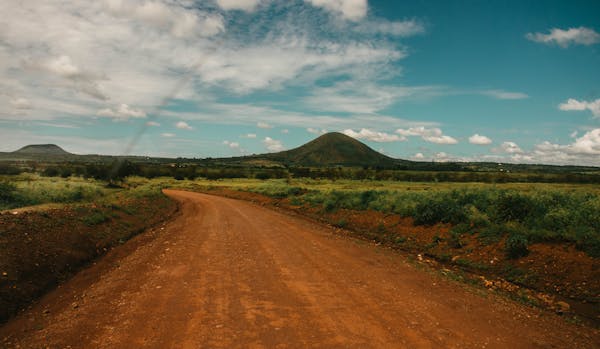
Disadvantages of Rural Settlement
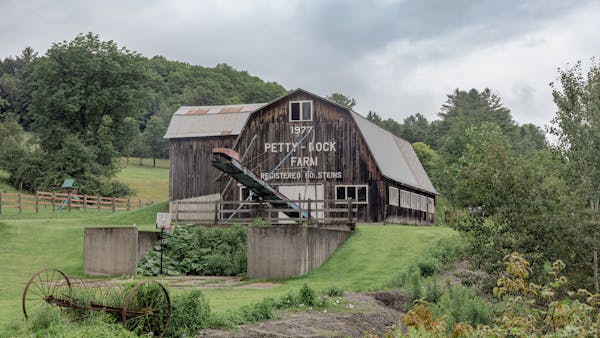
Disadvantages of rural settlement, The quality of life for people living in South African rural communities is greatly impacted by a variety of issues. Rural communities face a variety of obstacles that impede their growth and well-being, from unequal access to basic amenities and financial difficulties to barriers in education and health care.
This article explores the challenges that South African rural communities confront, highlighting the inadequate infrastructure, social isolation, and environmental vulnerabilities that impact the quality of life for those who reside there. Policymakers, organizations, and communities must be aware of these drawbacks in order to solve the structural problems that contribute to the nation’s rural inequality.
Limited access to essential services
Living in rural areas of South Africa can come with its share of challenges, particularly when it comes to accessing essential services that many urban dwellers may take for granted. Inadequate healthcare facilities, finding decent healthcare facilities in rural areas can be a bit like searching for a needle in a haystack. Limited hospitals, clinics, and medical professionals mean that receiving timely and quality healthcare can be a struggle for rural residents.
Limited access to clean water and sanitation
Ever tried to have a refreshing drink of water only to find it tasting more like a liquid version of dirt? Yup, that’s the reality for many rural South Africans who lack access to clean water and proper sanitation facilities. It’s not just inconvenient; it’s a health risk. Challenges in accessing reliable transportation, Getting from point A to point B can be a bit of a headache when public transportation options are as scarce as a unicorn in the wild. Rural areas often face challenges with reliable and affordable transportation, making it difficult for residents to travel for work, healthcare, or other essential needs.
Economic challenges and limited employment opportunities
Living in a rural settlement in South Africa can sometimes feel like being stuck between a rock and a hard place when it comes to making a living and finding job opportunities. The South African government has an obligation of doing a deliberate investment to the rural areas to serve the people living in rural areas. The rural people just like the urban people have the right to living in high standards. Once the rural living standard is improved, this fact could attract more people to migrate to the rural areas.
Impact of agricultural dependency
Rural areas often heavily rely on agriculture as their main source of income. While farming can be rewarding, it also comes with uncertainties like unpredictable weather patterns and market prices, leaving many rural residents vulnerable to economic fluctuations.
Lack of diverse industries
Ever dreamt of pursuing a career in tech, fashion, or finance? Well, in many rural areas, those dreams might be a bit out of reach. Limited industry diversification means fewer employment options outside of traditional sectors like farming or manual labor. Issues with limited market access for rural businesses, trying to grow a business in a rural setting can feel a bit like selling ice to Eskimos when there’s limited market access. Rural businesses often struggle to reach larger consumer markets, hindering their growth potential and economic sustainability.
Lack of infrastructure and amenities
Living in a rural settlement can sometimes feel like taking a trip back in time, especially when it comes to basic infrastructure and modern amenities. Being different from the urban areas, there is need of improving the living standards of people in the rural areas. Given the small number of people in the rural areas, it becomes difficult for governments to provide the rural areas with all the social services as found in the urban areas. Despite, the small number of people living in the rural areas; there is still need and necessity of investing in the rural as that may attract people to live in there.
Insufficient road networks and public transportation
Roads that resemble Swiss cheese and public transportation that operates on a “whenever we feel like it” schedule can make commuting a nightmare. Poor road networks and limited public transport options can hinder mobility and access to services for rural residents.
Limited access to electricity and telecommunications
Imagine trying to binge-watch your favorite show or finish an urgent work task only to be hit with a power outage or poor network coverage. Limited access to reliable electricity and telecommunications services can hamper daily activities and limit opportunities for education and economic growth.
Challenges in accessing banking and financial services
Forget about quick and easy banking transactions when the nearest bank is a two-hour drive away. Rural residents often face challenges in accessing basic banking and financial services, making it difficult to save, invest, or access credit when needed. Educational limitations, for many rural residents in South Africa, pursuing an education can feel like climbing Mount Everest without proper gear – challenging and overwhelming.
Shortage of schools and educational resources
Schools in rural areas can sometimes feel like a rare gem, few and far between. Shortages of educational institutions and resources mean that many children miss out on quality education that can shape their future. Impact of long distances to schools on attendance, ever complained about your ten-minute walk to school? Try walking for hours through rough terrain just to get an education. Long distances to schools can deter students from attending regularly, impacting their academic performance and future opportunities.
Challenges in attracting and retaining qualified teachers
Having a teacher who can recite the periodic table backward and forward is a luxury in many rural schools. Challenges in attracting and retaining qualified teachers mean that students may not always receive the quality education they deserve, limiting their potential for success.
Health Care Disparities
Living in rural areas of South Africa can pose significant challenges when it comes to accessing adequate healthcare services. Here are some of the key health care disparities faced by rural communities:
Minimal or no Specialized Medical Services
One major disadvantage of rural settlements in South Africa is the lack of specialized medical services. Residents often have to travel long distances to urban centers to seek treatment from doctors with specific expertise. This can result in delays in diagnosis and treatment, impacting the overall health outcomes of individuals living in rural areas.
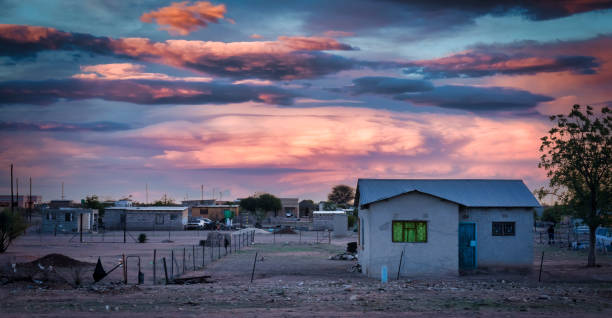
Limited Access to Emergency Medical Care
In rural settlements, access to emergency medical care can be limited. Ambulance services may have longer response times due to the distance between healthcare facilities and remote villages. This delay in emergency care can have serious implications for patients experiencing life-threatening situations, highlighting the urgent need for improved infrastructure and resources in rural healthcare systems.
Impact of Healthcare Worker Shortages on Rural Communities
Rural areas often face shortages of healthcare professionals, including doctors, nurses, and specialists. This lack of personnel can strain existing healthcare facilities and lead to overworked staff members. The absence of adequate healthcare workers can result in decreased quality of care, longer wait times for appointments, and limited availability of medical services, affecting the overall well-being of rural communities.
Social Isolation and Limited Community Resources
Disadvantages of rural settlement, in addition to health care disparities, rural settlements in South Africa also grapple with social isolation and limited access to community resources. Let’s explore some of the challenges faced by residents living in these areas. While it is obvious that the rural areas in South Africa are so much isolated, we can improve the situation through internet connectivity and by encouraging social activities amongst the rural people.
Impact of Sparse Populations on Social Connections
Sparse populations in rural areas can contribute to feelings of social isolation among residents. Limited opportunities for social interaction and community engagement can lead to loneliness and a lack of support networks. Building and maintaining social connections may require extra effort in rural settings, highlighting the importance of fostering community relationships to combat social isolation.
Challenges in Accessing Community Centers and Recreational Facilities
Disadvantages of rural settlement, rural communities often have fewer community centers and recreational facilities compared to urban areas. Residents may have to travel long distances to access leisure activities, sports facilities, or cultural events. This lack of local amenities can limit recreational opportunities for individuals and families, impacting their quality of life and overall well-being.
Limited Availability of Social Services and Support Networks
Rural settlements may face challenges in accessing essential social services and support networks. Mental health services, counseling resources, and social welfare programs may be scarce in remote areas, making it difficult for residents to receive the necessary support and assistance. Strengthening social services in rural communities is crucial to address the diverse needs of individuals and promote social well-being.
Environmental Challenges and Natural Disasters
Rural settlements in South Africa are not immune to environmental challenges and natural disasters, which can have far-reaching implications for residents. Here are some of the key environmental concerns faced by rural communities:
Vulnerability to Weather-Related Disasters
Rural areas are often vulnerable to weather-related disasters such as floods, droughts, and storms. These natural events can disrupt agricultural activities, damage infrastructure, and threaten the livelihoods of rural residents. Building resilience to weather-related disasters through effective disaster preparedness and response measures is essential to safeguarding rural communities against the impacts of climate change.
Impact of Environmental Degradation on Rural Livelihoods
Environmental degradation, including soil erosion, deforestation, and pollution, can adversely affect rural livelihoods in South Africa. Declining natural resources and deteriorating ecosystems can jeopardize agricultural productivity, water quality, and biodiversity, leading to economic hardships for rural households. Implementing sustainable land management practices and conservation strategies is crucial to mitigating the negative impacts of environmental degradation on rural communities.
Challenges in Implementing Sustainable Practices in Rural Areas
Promoting sustainability in rural areas can be challenging due to limited resources, technological constraints, and socioeconomic barriers. Adopting sustainable practices such as renewable energy solutions, waste management strategies, and conservation initiatives requires collective efforts from communities, governments, and stakeholders. Overcoming these challenges and fostering a culture of sustainability in rural settlements is essential for ensuring the long-term well-being of residents and the preservation of natural environments.
Conclusion on Disadvantages of rural settlement
The disadvantages of rural settlement in South Africa highlight the urgent need for targeted interventions and support to uplift these communities and create a more equitable society. By addressing the challenges of limited access to services, economic opportunities, infrastructure, education, healthcare, social connections, and environmental sustainability, we can strive towards building thriving rural areas that offer a better quality of life for all residents. It is through concerted efforts and collaborative initiatives that we can work towards overcoming these barriers and creating a more inclusive and prosperous future for rural South Africa.

FAQs on Disadvantages of rural settlement
1. How do the disadvantages of rural settlement in South Africa compare to urban areas?
2. What initiatives are in place to address the challenges faced by rural communities in South Africa?
3. How can individuals or organizations contribute to improving the conditions of rural settlements in South Africa?
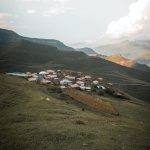
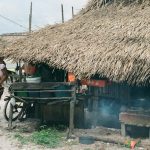

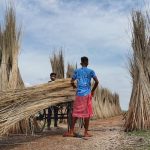
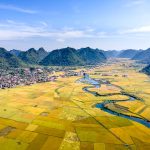




Купить попперсы с доставкой по Мурманску https://poppers51.ru большой выбор по доступной цене на нашем сайте